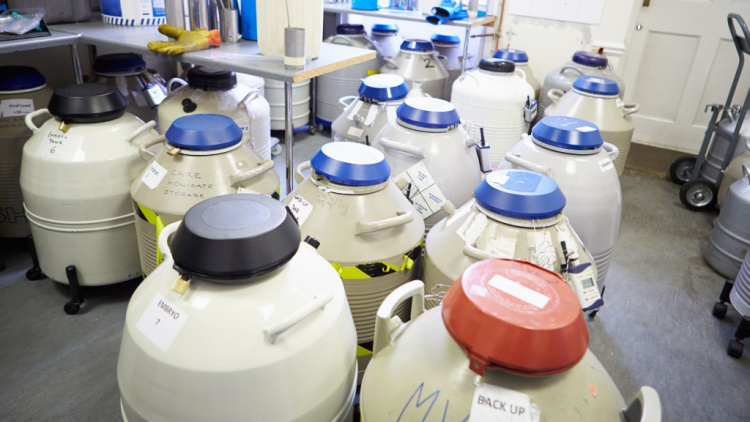
Although many LGBTQ+ couples enlist the services of sperm banks and even though there exists a shortage of samples from Black men in sperm banks across the country, men who have sex with men continue to be forbidden from donating sperm. TreVaughn Roach-Carter, 26, made that discovery when he received a rejection email a day after contributing to the Sperm Bank of California.
The email informed him that since he had indicated that he was gay, and Food and Drug Administration regulations prohibit anonymous sperm donations from men who have had sex with men within the past five years, he could not donate anonymous sperm, the Washington Post reports.
“I thought these bans were something that was long gone and over and that I wouldn’t have to worry about it,” Roach-Carter told the paper.
He explained that being a donor was essential to him as a gay Black man because he feels that people ought to have the right to have families that look like them.
The Post found that Black sperm donors make up less than 2 percent of sperm donors who have donated to the largest cryobanks in the U.S.
Roach-Carter also said that it was also important to help LGBTQ+ couples who utilize the services of sperm banks to have children.
“I know that when the time comes for me to have children, it will be a lengthy, stressful, and also probably expensive process. And I wanted to help make things as easy for other people as possible who would be going through similar things,” he told the paper.
The process itself is already highly selective. For example, in 2018, when he initially inquired about donating sperm, sperm bank officials told him to finish his bachelor’s and master’s degrees first since donors with higher educations are preferred.
The paper reports that in addition to a physical and psychological examination, a three-generation medical history, a criminal background check, a genetic screening, and a semen analysis are also included in the process. Also, most cryobanks require men to be between the ages of 18 and 39 and five feet seven inches tall to be considered.
In 2005, the FDA banned men who had sex with men, based on data from the early 1980s and early 1990s during the peak of the AIDS crisis.
Donors with common conditions like diabetes and bipolar disorder and those with genetic indicators for certain cancers are screened and rejected from sperm banks.
Before donor sperm is released for sale on cryobank websites, it is quarantined for six months and tested for HIV by the FDA.
Even though today’s donor screening tests are incredibly accurate and sensitive, the FDA believes additional safeguards are needed to prevent infectious diseases from being introduced, transmitted, and spread, an FDA spokesperson told the Post.
Seattle Sperm Bank told the paper that it rejected a man due to his sexual orientation in the spring.
“We’re huge LGBTQ advocates. The majority of the people who work with us are part of two-mom families,” clinic relations manager Alyse Mencias said. “It feels like we’re stuck in this duality where we wholeheartedly support and welcome the LGBTQ community, but then we have to fall under these ancient regulations.”
The FDA continues to prohibit men who have sex with men from donating blood if they have had sex with another man within the last three months.
In January, the White House acknowledged the painful origins of the policy.
“The legacy of bans on blood donation continues to be painful, especially for LGBTQI+ communities,” a White House official told ABC news. “The President is committed to ensuring that this policy is based on science, not fiction or stigma. While there are no new decisions to announce at the moment, the FDA is currently supporting the ADVANCE study, a scientific study to develop relevant scientific evidence and inform any potential policy changes.”







